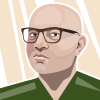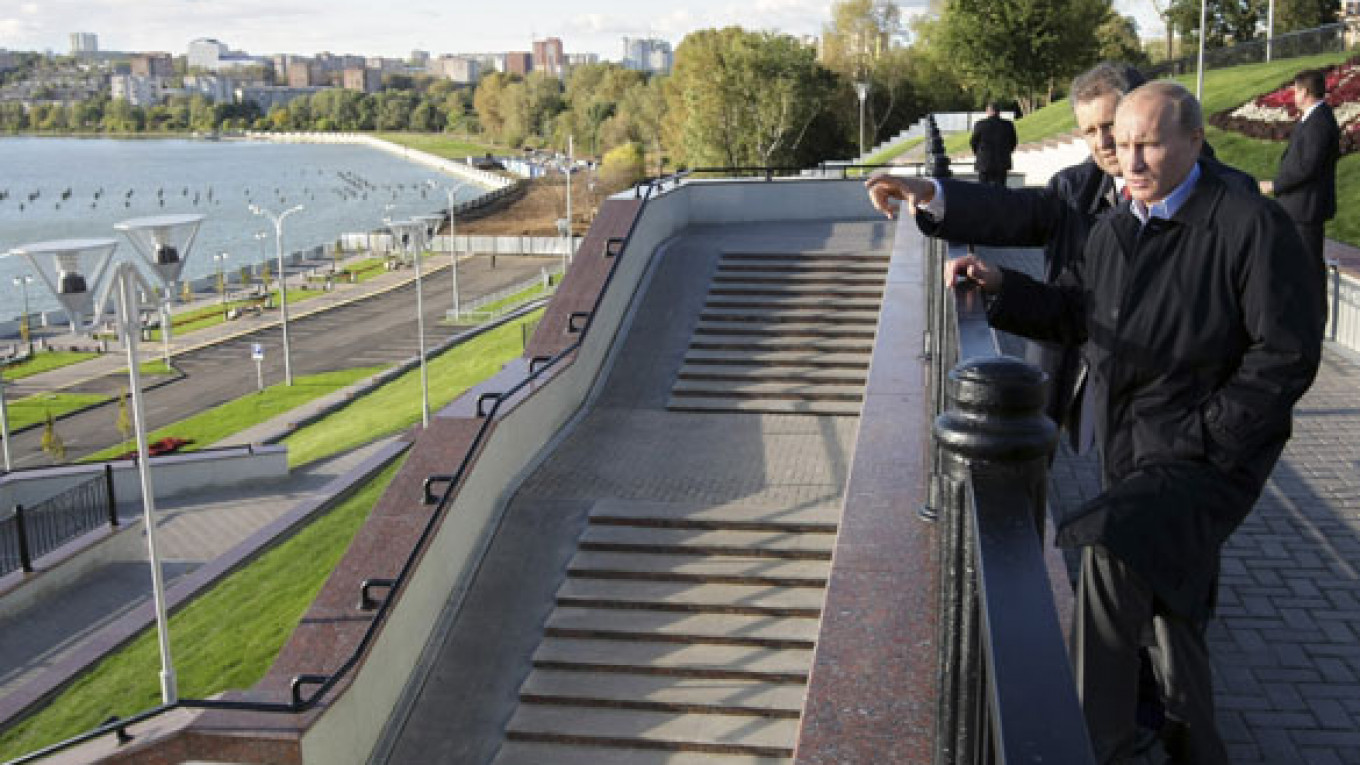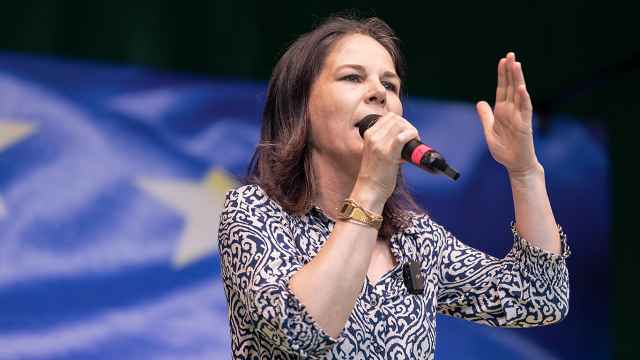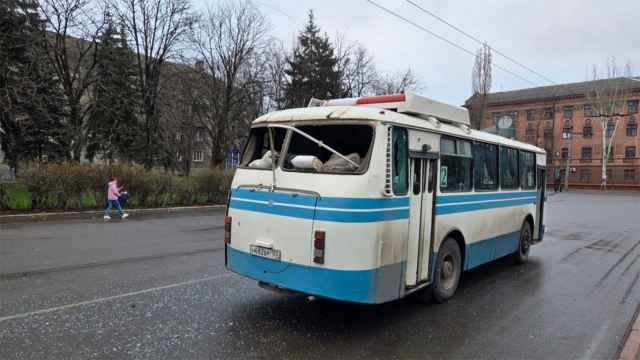Prime Minister Vladimir Putin insisted that Russia remained open to foreign investment in strategic sectors, accused jailed former Yukos CEO Mikhail Khodorkovsky of having “blood on his hands” and spoke of Washington and Beijing in uncharacteristically warm terms during a meeting with Russia experts.
But otherwise, Putin offered few surprises when quizzed by the Valdai Club of Russian and foreign experts about modernization, the country’s demographic crisis and his plans for the 2012 presidential election.
“We don’t need any jumping up or down or sideways or left or right,” Putin said at the start of the meeting at his residence in Sochi on Monday evening, according to a transcript posted on the government’s web site.
Putin said his priority was stable conditions for Russia’s further development.
One step toward development, analysts say, would be to lower barriers for investors — including rules that require foreign investors to obtain government authorization to enter about 40 sectors of the economy deemed as strategic, including oil, gas, media and telecoms.
Asked about the rules, Putin said the government has not banned foreigners from working in strategic industries — even though no foreign investors have been allowed into a strategic enterprise since Putin became prime minister in spring 2008.
“Sincerely, I don’t know any example of an ultimate denial,” Putin said.
He said that even though his Cabinet has not granted any requests from foreign companies, it was studying them in a “stable way.”
Putin also said he was confident in Gazprom’s export future and pricing strategies, adding that the government, which controls 51 percent of the gas giant, stays away from its operational management.
Adam Michnik, a prominent Polish journalist, told reporters that Putin changed his generally relaxed tone when asked about Khodorkovsky during a part of the meeting that was closed to nonparticipants and not published on the government web site.
“This man has blood on his hands,” Putin said, according to Michnik, Interfax reported.
Putin linked Khodorkovsky to the killing of a Siberian mayor and a Moscow woman, repeating accusations that he made during a televised call-in show last December.
“There was a small shop in Moscow. They came to the owner of the shop and said, give us the shop. She refused, and they killed her. This was proven in court. You understand? It was proven,” Putin said, according to Reuters, which had a reporter present.
“Also proven was the murder of the mayor of one of the Siberian cities where Yukos worked,” Putin said.
But Putin added that “Khodorkovsky’s issue will be decided in court.”
Khodorkovsky, who is serving an eight-year sentence after being jailed on fraud and tax charges in 2003, is currently being tried on similar charges in a second trial. He has not been charged for murder and denies all allegations against him, calling them politically motivated.
Alexander Rahr, a Russia expert with the German Council on Foreign Relations, a think tank, said Tuesday that Putin departed from his previously cautious attitude toward U.S. President Barack Obama at the closed session.
“I was very interested in how warmly Putin spoke about Obama. He even called him a like-minded fellow,” Rahr said by telephone.
Rahr, who also attended the previous six annual meetings with Putin, noted an unusual courtship of China by the prime minister.
Putin described China as Russia’s close partner several times and warned the West not to try to drive a wedge between Moscow and Beijing, Rahr said.
He added that this time Putin had not felt restrained in picking his words carefully, similar to an Aug. 30 interview with Kommersant that was abundant with colloquialisms bordering on rudeness. “Putin was very self-confident there, as if telling everyone, ‘Accept me as I am,’” Rahr said.
Putin did not confirm or deny whether he planned to run in the 2012 presidential elections, saying he would tie his possible bid to the political situation in Russia and promising not to violate the Constitution, which forbids two consecutive terms.
The next presidential term will be extended to six years, from the current four, under a constitutional amendment passed in late 2008 by the ruling United Russia party, which Putin leads.
Putin praised President Dmitry Medvedev’s efforts to modernize the economy and his Cabinet’s anti-crisis measures. But he named only one measure: the lifting of customs barriers on technological equipment for sensitive sectors of the economy.
Putin said the most critical indicator of the government’s efforts to boost the economy is a slight improvement in the demographic situation in recent years.
Many demographers agree that the recent improvement is because young people born during a small baby boom in the late 1980s are now giving birth themselves. The 1980s birth rate increase was caused by Soviet leader Mikhail Gorbachev’s anti-alcohol campaign and public hopes tied to his perestroika.
Putin criticized opposition and human rights activists who have repeatedly tried to get permission to rally on Moscow’s Triumfalnaya Ploshchad as provocateurs. “They want attention at any price. How? By provoking the authorities to use force,” he said, Reuters reported.
“I think if we let them meet where they want, on the square in Moscow, they would then realize that no one would pay them any attention and they would go to another place, to a third place. They would seek conflict with the authorities. They need this.”
Putin told Kommersant that the protesters deserved to be beaten for rallying without authorization.
A Message from The Moscow Times:
Dear readers,
We are facing unprecedented challenges. Russia's Prosecutor General's Office has designated The Moscow Times as an "undesirable" organization, criminalizing our work and putting our staff at risk of prosecution. This follows our earlier unjust labeling as a "foreign agent."
These actions are direct attempts to silence independent journalism in Russia. The authorities claim our work "discredits the decisions of the Russian leadership." We see things differently: we strive to provide accurate, unbiased reporting on Russia.
We, the journalists of The Moscow Times, refuse to be silenced. But to continue our work, we need your help.
Your support, no matter how small, makes a world of difference. If you can, please support us monthly starting from just $2. It's quick to set up, and every contribution makes a significant impact.
By supporting The Moscow Times, you're defending open, independent journalism in the face of repression. Thank you for standing with us.
Remind me later.







